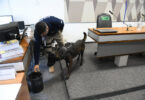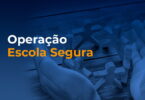No mês passado nós apresentamos alguns dos fundamentos para o sucesso de uma empresa e ou indústria de turismo bem sucedida. Embora cada local seja diferente, e este é um princípio básico para enfatizar os aspectos únicos e diferentes de seu negócio local, os seres humanos são basicamente os mesmos em todo o mundo e os melhores princípios de um bom turismo são os mesmos em todas as culturas e línguas.
Turismo nada mais é do que a narração de uma história em que o visitante se torna parte do conto. Viajar é buscar o diferente, para encontrar uma maneira de sair da monotonia da vida diária e entrar em um mundo de não-realidades. Este princípio básico significa que a indústria do turismo deve permitir que seus visitantes experimentem o único e especial em um ambiente seguro. Lembre-se que nós estamos vendendo lembranças e é nosso trabalho ajudar nossos clientes a criarem memórias que possam ser compartilhadas.
-Você compreende o seu produto turístico da mesma forma como os seus clientes o veem? Por exemplo, você pode dizer que você faz destinos familiares, mas se os seus clientes o veem de outra perspectiva, será necessária uma quantidade enorme de marketing para mudar a sua imagem. Antes de lançar uma nova campanha de marketing considere o que os seus destinos fazem como seus clientes se sintam, por que as pessoas escolhem os seus destinos em relação a concorrência, e quais benefícios emocionais seus visitantes recebem quando escolheu seu destino.
Um sorriso é universal. Talvez a técnica mais importante para aprender no turismo é como sorrir. Um sorriso sincero pode compensar muitos erros. Viagens e turismo são construídos em torno de princípios de altas expectativas, muitos dos quais nunca se conhecem. Esta lacuna entre a imagem e a realidade nem sempre é culpa da indústria. Há pouco o que a indústria pode fazer para fazer uma tempestade acabar ou para parar uma nevasca inesperada. O que podemos fazer é mostrar às pessoas que nós nos importamos e somos criativo. A maioria das pessoas pode perdoar um ato da natureza, mas poucos clientes vão perdoar um estado de insensibilidade ou falta de cuidado e atenção.
Turismo É uma experiência orientada para o cliente. Nos últimos poucos anos muitos centros de turismo e visitantes têm trabalhado duro com o objetivo de guiar seus clientes a partir de experiências centradas no ser humano para experiências virtuais / online / experiências de páginas da web. A lógica por trás deste movimento é que eles terão grandes corporações: como companhias aéreas uma grande quantidade de dinheiro em salários sendo criados…. O risco que estas empresas terão de considerar é que os turistas desenvolvem relacionamentos com as pessoas em vez de web sites. Quando o turismo e as empresas de viagens conduzirem as pessoas para sites, eles devem estar prontos para aceitar que a fidelidade do cliente diminuirá e as ações de seu pessoal da linha de frente se tornarão ainda mais importantes.
Nós podemos falar sobre educar os nossos clientes, mas lembre-se que eles não são nossos estudantes, são nossos clientes. Com demasiada frequência, especialmente em visitas guiadas, temos a falsa noção de que nossos clientes são nossos alunos. Guias precisam falar menos e permitir os visitantes a experimentar mais. O adulto médio, em turnê, para de ouvir depois de cerca de 5-7 minutos. De uma maneira semelhante muitos departamentos de polícia e organizações de segurança acreditam erroneamente que eles podem educar o visitante alegando respeito e segurança pessoal. Suponha que o visitante não irá prestar atenção e desenvolva programas de segurança baseados neste simples fato.
Seja autêntico. Nada é desmascarado mais facilmente do que a falta de autenticidade. Não tente ser o que não é , mas sim ser o melhor você possa ser. locais de turismo que são autênticos e naturais tendem a ser os mais bem sucedidos. Para ser autêntico e original não significa apenas apresentar florestas ou praias, mas uma apresentação única da realidade cultural.
Visitantes podem esquecer um pôr do sol, mas raramente se esquecem de uma boa refeição. Enfatize os aspectos culinários da sua indústria do turismo. Use produtos sempre locais, apresentados de forma colorida e originais, promovam receitas locais. Os alimentos podem alterar uma boa viagem em um momento memorável
Procure desenvolver novos talentos. O turismo é hardwork e muitas pessoas acham a indústria muito difícil. Esteja sempre a procura de empregados novos e criativos, procurar pessoas que são gregários e extrovertidos, e pessoas que tenham ambos, paciência e senso de aventura.
Use Várias metodologias para compreender as tendências em turismo. Há uma tendência no turismo de usar metodologias analíticas puramente qualitativos ou quantitativos. Ambos são importantes e podem fornecer informações adicionais. Os problemas ocorrem quando nos tornamos tão dependentes de um tipo de análise que nos fazem ignorar a outra. Lembre-se de pessoas pesquisadas ao longo do serviço. Dados informatizados nem sempre são verdadeiros. Embora os métodos podem ser altamente válidos seus fatores de confiabilidade podem ser menor do que o que nós acreditamos. Erros de votação tanto os EUA e no Reino Unido devem lembrar-nos do princípio de “lixo para dentro / lixo para fora”.
Quando em caso de dúvida, a coisa certa aazer é a melhor coisa a fazer. Não corte os detalhes porque os tempos são difíceis. Este é o tempo para construir uma reputação de integridade, fazendo a coisa certa. Certifique-se de dar valor ao dinheiro do seu cliente em vez de parecer ser egoísta e ganancioso. O negócio da hospitalidade é o de fazer para os outros, e nada anuncia e divulga melhor um lugar do que dar algo extra num período de constrição econômica. De maneira semelhante, os gerentes nunca deveriam cortar seus subordinados e salários antes de cortar o seu próprio. Se a redução nas forças são necessárias, um gerente deveria pessoalmente lidar com a situação, apresentar um adeus simbólico e nunca estar ausente num dia de ausência de trabalho.
Quando as coisas vão mal, tenha calma. As pessoas vêm até nós para obter tranquilidade e esquecer seus problemas, não para aprender sobre nossos problemas. Nossos clientes nunca deveriam ser sobrecarregados com as nossas dificuldades econômicas. Lembre-se: eles são nossos convidados e não nossos conselheiros. Ética no turismo requer que a sua vida pessoal fique em sua casa. Se você está agitado demais para trabalhar, é melhor ficar em casa. Uma vez que esteja no local de trabalho, no entanto, tenha a responsabilidade moral para se concentrar nas necessidades dos nossos clientes e não em nossas próprias necessidades. A melhor maneira de ter calma em uma crise é estar preparado. Por exemplo, no mundo pós 11 de setembro toda comunidade precisa ter um plano de segurança do turismo. De maneira semelhante, a sua comunidade ou atração precisa treinar funcionários sobre como lidar com os riscos de saúde, mudanças de viagem, e questões de segurança pessoal.







